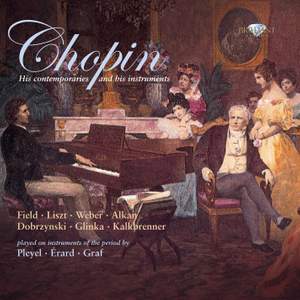This 6CD set charts not only the development of the Nocturne as a musical form, but also the development of the piano from the closing years of the 18th and first half of the 19th centuries. Two great ‘piano schools’ had emerged, each having some of the greatest performers and composers of the day associated with them. Some of these composers were highly successful businessmen as well – Clementi and Pleyel in particular established highly successful piano manufacturing and music publishing firms. The English school, with its powerful instruments (of which the pianos of John Broadwood and Co are the best examples) enabled London based composers such as Cramer, Clementi and Dussek to write music with a singing almost bel canto quality. These large instruments had sustaining pedals long before the lighter, crisper sounding Vienese school pianos. Composers such as Hummel and Kalkbrenner were equally happy on either, but Hummel (a pupil of Mozart and friend of Beethoven) had a preference for the Viennese instrument as it managed to sound well against an orchestra, and it’s action was lighter and quicker than the English pianos. Chopin was greatly influenced by Clementi’s Irish pupil John Field. Field pioneered – indeed invented the musical nocturne, and Chopin played Field’s music throughout his life, eventually meeting him in 1833. The irascible and often drunk Field didn’t warm to Chopin: ‘he has the talent of the sick room’. Also included on these CDs are nocturnes and works by composers contemporaneous with Chopin – all the Field nocturnes performed on a Broadwood, and the great Third Sonata of Weber, a highly virtuosic work that displays the Viennese piano admirably. A generous selection of Chopin’s nocturnes and mazurkas and his early works complete this fascinating survey of piano music from the years between 1810 and 1850. Other information • Comprehensive booklet notes • Many rare works included • Chopin birth bi-centenary this year will see considerable interested in the composer and his world.





